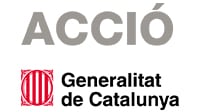The MODEM project develops and tests demand prediction and management models to be implemented in the utilities sector (electricity, gas and water provision infrastructures). The project, geared towards developing solutions aimed at prosumers, identifies behaviour patterns and processes consumption data to generate tailor-made service strategies.
As part of the MODEM project, new measurement technologies are implemented, along with artificial intelligence and machine learning techniques, to use existing resources in the most efficient way possible, thus guaranteeing a sustainable supply.
The scope of the project covers the development of grid balancing and loss control (energy, water, etc.) tools, non-technical loss detection and fraud identification, grid investment analysis and prioritisation applications, devices and algorithms combined with smart metering for consumption breakdown, Demand Response strategies and systems, and demand prediction applications.
MODEM is a project by RIS3CAT’s Utilities 4.0 Community, coordinated by Naturgy with participation from Eurecat and 9 other companies. The Community’s aim is to transform the utilities sector by identifying a set of tools and solutions that promote digitalisation towards the concept of Utilities 4.0 and to weave an industrial fabric through the development and application of these new solutions.
Eurecat, through its Smart Management Systems Technological Unit, is contributing to the project by developing technologies to implement various Demand Response (DR) strategies for electrical demand, demonstrated in commercial buildings, and DR strategies for water demand, in order to study the impact of various price frameworks on demand. Eurecat is also participating in the development of algorithms to improve grid balancing and non-technical loss detection.

General details
Project
MODEM – Predictive models and demand response
Project reference
R+D Project from RIS3CAT Utilities 4.0 Community
COMRDI16-1-0057
Programme and call for tender
Project cofounded by the European Regional Development Fund (FEDER) under the FEDER Catalonia Operative Programme 2014-2020.









